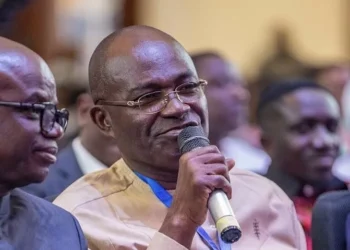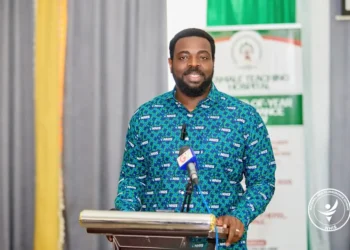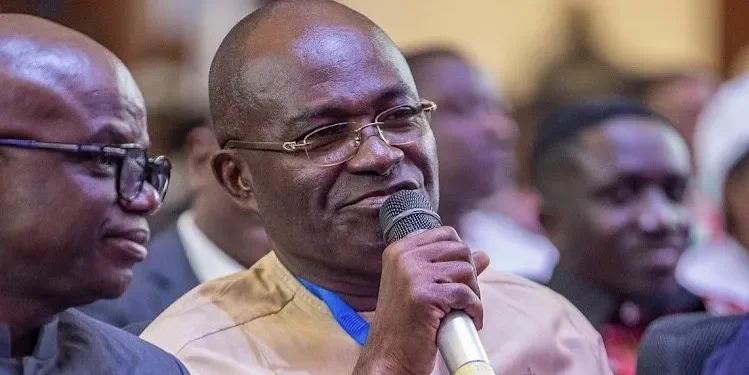The Chairman of Parliament’s Information and Communication Committee, Hon. Abednego Bandim Azumah, has stressed that state-owned media institutions can become self-sustaining with the right leadership and reforms.
The Bunkpurugu legislator argued that the Ghana Broadcasting Corporation (GBC), Ghana News Agency (GNA), and the Information Services Department (ISD) must be given the tools to operate effectively rather than remain dependent on government subventions.
“These agencies – GBC, GNA, and the ISD – can be self-sustained if they have the required leadership, because in other jurisdictions, we have their colleagues that don’t depend so much on government but are able to raise their own funds”
Hon. Abednego Bandim Azumah, Chairman of Parliament’s Information and Communication Committee
Hon. Bandim disclosed that the Committee would be engaging with the Minister of State in charge of Government Communications, Hon. Felix Kwakye Ofosu, who he said already understands some of the difficulties facing the institutions and has offered preliminary solutions.

“We would want him to take on board reforming the various agencies,” he noted. The call comes at a time when all three state agencies are under intense financial and operational pressure.
The Ghana Broadcasting Corporation, Ghana’s primary state broadcaster, has been forced to shut down two of its studios due to rising electricity costs. Reports indicate that GBC spends more than GHS 100,000 every week on electricity bills.
Management has introduced partial reliance on solar energy but insists that both government and donor support are still necessary to sustain full operations.
The Ghana News Agency, which has long served as the national news wire, is battling high staff attrition after delays in government subventions left journalists without payment for essential field coverage in the previous year.
Journalists are currently given an out-of-station allowance of GHS 280, a figure management describes as inadequate to cover fieldwork expenses. This has left many staff frustrated and unwilling to continue service.

ISD Archives at Risk
The Information Services Department, once central to government communication and national awareness campaigns, is now crippled by outdated equipment, decaying infrastructure, and very limited resources.
The department operates with fewer than 30 vehicles nationwide, limiting its outreach capacity. Its audiovisual unit, which contains priceless archives of Ghana’s history from the pre-independence period, is under threat due to poor storage and lack of digitisation.
Following an inspection tour of the ISD, Hon. Bandim described the situation as disheartening.
“We saw a lot and it was very heartbreaking. At the ISD, they took us to a unit called the audiovisual unit, where they keep our archives predating independence. We saw documentation of the activities of former presidents –
“Yet you go to the office, and there are cables running around, they have no computer. It is so bad under the condition that the staff are working”
Hon. Abednego Bandim Azumah, Chairman of Parliament’s Information and Communication Committee
The lawmaker said he was particularly concerned that even though international researchers often consult Ghana’s archives, the lack of computers and proper storage risks destroying records of immense historical importance.

“That information is our national archives and they are going to waste,” he added, noting that the ongoing struggles at GBC, GNA, and ISD highlight a broader crisis of state-owned media and communication bodies in Ghana.
All three institutions have appealed for urgent government action to restore their operations, boost staff morale, and secure their ability to play their mandated roles in national communication and development.
Hon. Bandim believes that leadership and reforms will be decisive in turning the institutions around.
His comments underscore a broader parliamentary concern that without change, the country risks not only the collapse of vital agencies but also the loss of priceless records that embody Ghana’s collective history.
READ ALSO: Mining Consultant Demands Parliament Oversight on GoldBod’s $1B Dubai Deal






















